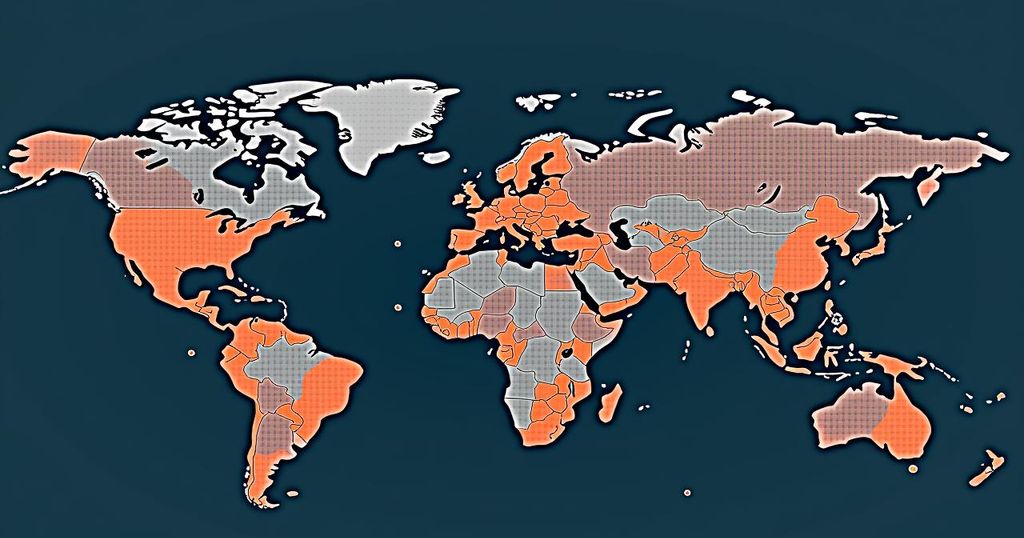International Spread of Mpox: Current Status and Health Concerns
The mpox virus is spreading internationally, with new cases confirmed in Sweden, Thailand, the Philippines, and Pakistan. Fourteen African nations are experiencing the outbreak, primarily the Democratic Republic of the Congo, which reports the highest number of cases and fatalities. The WHO has declared a public health emergency regarding this situation, emphasizing the significance of monitoring the new Clade 1 variant. Health agencies stress the urgency of testing and surveillance to manage the potential spread of the virus across regions.
The mpox virus, previously known as monkeypox, has exhibited a concerning new trend with the emergence of a potentially more virulent strain, specifically Clade 1, which is intensifying its spread beyond the African continent. Recent reports have confirmed mpox cases in countries such as Sweden, Thailand, the Philippines, and Pakistan, marking a significant expansion from the initial outbreak regions in East Africa. As of mid-August, fourteen African nations have also reported confirmed cases, highlighting the escalating public health concern. The World Health Organization (WHO) has classified the current situation as a “public health emergency of international concern,” despite clarifying that mpox should not be equated with COVID-19. This declaration represents a serious alert regarding the virus’s potential impact, especially as the Clade 1 strain appears to propagate through direct skin contact. Historically, the Clade 2 variant of mpox caused a significant outbreak in 2022, with varying severity and transmission routes. Current data indicates that the Democratic Republic of the Congo (DRC) bears the brunt of the outbreak, with over 13,000 cases reported and a high associated mortality rate, notably among children. The spread of Clade 1b has emerged in neighboring countries like Kenya, Rwanda, and Uganda, signaling a potential regional crisis. Meanwhile, the recent mpox cases in Asia reflect a troubling trend of the virus’s transcontinental transmission. Sweden’s lone case marks Europe’s first involvement in this new surge, raising fears of further cases as global travel resumes. Health agencies emphasize the importance of stringent testing, surveillance, and contact tracing to control the infection’s spread across Europe and elsewhere, urging vigilance in all regions, including the Americas and Oceania, where no new cases have yet been reported.
Mpox, previously referred to as monkeypox, is a viral disease caused by the mpox virus, which has been primarily confined to African countries for decades. It has recently drawn international attention due to a notable increase in cases linked to new viral strains, specifically the Clade 1 variant, which is believed to have a potentially higher fatality rate than previous strains. The outbreak in the DRC has been particularly severe, prompting global health agencies to monitor the situation closely, given the virus’s capacity for international travel via infected individuals. The role of public health authorities is crucial, with initiatives focused on surveillance and emergency responses, especially in light of the fatalities and the transmission dynamics observed in different variants of the virus.
The mpox virus is spreading rapidly, with significant outbreaks continuing in Africa and new cases emerging across Asia and Europe. Health professionals are on high alert as the WHO has classified this surge as a public health emergency. Attention is needed to combat the virus’s spread, particularly the new Clade 1 variant, which poses a heightened risk of severe illness. Countries and health organizations must remain vigilant and prepared to implement necessary health measures to curb this viral threat.
Original Source: www.aljazeera.com




Post Comment